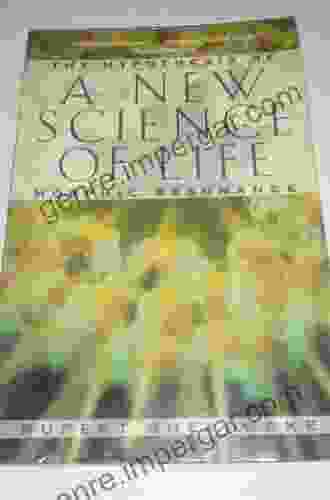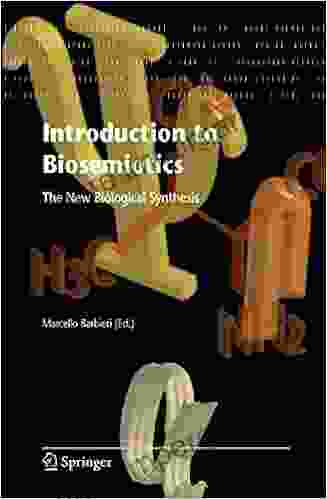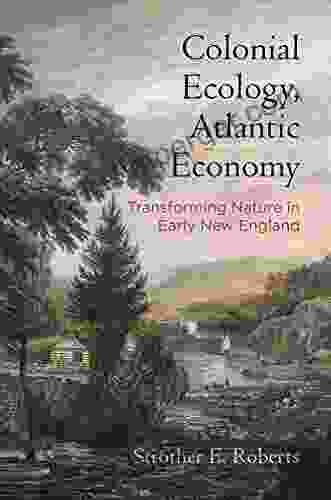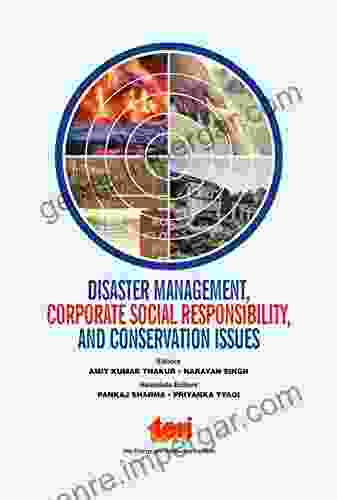Colonial Ecology Atlantic Economy: Transforming the Americas through the Exchange of Plants, Animals, and Disease

4.5 out of 5
| Language | : | English |
| File size | : | 6021 KB |
| Text-to-Speech | : | Enabled |
| Screen Reader | : | Supported |
| Enhanced typesetting | : | Enabled |
| Word Wise | : | Enabled |
| Print length | : | 280 pages |
The arrival of Europeans in the Americas in the late 15th century marked the beginning of a profound ecological transformation of the hemisphere. Over the next several centuries, Europeans introduced a wide variety of plants, animals, and diseases to the Americas, while American species were introduced to Europe and other parts of the world. This exchange of species had a profound impact on the ecology of both the Americas and Europe.
One of the most significant ecological changes brought about by the Columbian Exchange was the of new crops to the Americas. Maize, beans, and squash, which were staples of the American diet, were introduced to Europe and quickly became important crops there. These crops were more productive than the traditional European grains, and they helped to feed a growing population.
The of new livestock to the Americas also had a major impact on the environment. Horses, cattle, and pigs were introduced to the Americas by the Spanish, and they quickly became an important part of the economy. These animals provided food and transportation, and they also helped to clear land for agriculture.
The of new diseases to the Americas was perhaps the most devastating ecological change of all. Smallpox, measles, and influenza were introduced to the Americas by Europeans, and they killed millions of Native Americans. These diseases were particularly devastating because the Native Americans had no immunity to them.
The ecological changes brought about by the Columbian Exchange had a profound impact on the history of the Americas. The of new crops, livestock, and diseases helped to transform the Americas into a more productive and prosperous region. However, these changes also had a negative impact on the environment, and they contributed to the decline of Native American populations.
The Columbian Exchange in Detail
The Columbian Exchange was a complex process that involved the exchange of plants, animals, and diseases between the Americas and Europe. This exchange had a profound impact on both the Americas and Europe, and it continues to shape the world today.
Plants
The Columbian Exchange introduced a wide variety of new plants to the Americas. These plants included maize, beans, squash, tomatoes, potatoes, and tobacco. These crops quickly became staples of the American diet, and they helped to feed a growing population.
The of new plants to Europe also had a major impact on the diet of Europeans. Maize, beans, and squash were quickly adopted by European farmers, and they became important crops in Europe. These crops were more productive than the traditional European grains, and they helped to feed a growing population.
Animals
The Columbian Exchange also introduced a wide variety of new animals to the Americas. These animals included horses, cattle, pigs, and sheep. These animals quickly became an important part of the economy of the Americas. They provided food and transportation, and they also helped to clear land for agriculture.
The of new animals to Europe also had a major impact on the economy of Europe. Horses, cattle, and pigs were quickly adopted by European farmers, and they became important animals in Europe. These animals provided food and transportation, and they also helped to clear land for agriculture.
Diseases
The Columbian Exchange also introduced a wide variety of new diseases to the Americas. These diseases included smallpox, measles, and influenza. These diseases killed millions of Native Americans, and they had a devastating impact on the population of the Americas.
The of new diseases to Europe also had a major impact on the population of Europe. Smallpox, measles, and influenza killed millions of Europeans, and they contributed to the decline of the population of Europe.
The Impact of the Columbian Exchange
The Columbian Exchange had a profound impact on the history of the Americas and Europe. The of new crops, livestock, and diseases helped to transform the Americas into a more productive and prosperous region. However, these changes also had a negative impact on the environment, and they contributed to the decline of Native American populations.
The Columbian Exchange also had a major impact on the history of Europe. The of new crops, livestock, and diseases helped to transform Europe into a more productive and prosperous region. However, these changes also had a negative impact on the environment, and they contributed to the decline of the population of Europe.
The Columbian Exchange is a complex and fascinating topic that continues to be studied by historians and scientists today. The exchange of plants, animals, and diseases between the Americas and Europe had a profound impact on both hemispheres, and it continues to shape the world today.
The Colonial Ecology Atlantic Economy: Transforming the Americas through the Exchange of Plants, Animals, and Disease is a comprehensive and well-researched book that provides a detailed account of the Columbian Exchange. The book is written in a clear and concise style, and it is accessible to a wide range of readers. The book is a valuable resource for anyone who is interested in the history of the Americas, Europe, or the environment.
4.5 out of 5
| Language | : | English |
| File size | : | 6021 KB |
| Text-to-Speech | : | Enabled |
| Screen Reader | : | Supported |
| Enhanced typesetting | : | Enabled |
| Word Wise | : | Enabled |
| Print length | : | 280 pages |
Do you want to contribute by writing guest posts on this blog?
Please contact us and send us a resume of previous articles that you have written.
 Book
Book Novel
Novel Page
Page Chapter
Chapter Text
Text Story
Story Genre
Genre Reader
Reader Library
Library Paperback
Paperback E-book
E-book Magazine
Magazine Newspaper
Newspaper Paragraph
Paragraph Sentence
Sentence Bookmark
Bookmark Shelf
Shelf Glossary
Glossary Bibliography
Bibliography Foreword
Foreword Preface
Preface Synopsis
Synopsis Annotation
Annotation Footnote
Footnote Manuscript
Manuscript Scroll
Scroll Codex
Codex Tome
Tome Bestseller
Bestseller Classics
Classics Library card
Library card Narrative
Narrative Biography
Biography Autobiography
Autobiography Memoir
Memoir Reference
Reference Encyclopedia
Encyclopedia Livy
Livy Linda Murphy Marshall
Linda Murphy Marshall Manfred F R Kets De Vries
Manfred F R Kets De Vries Simon Forty
Simon Forty Mami Body
Mami Body National Aeronautics And Space Administration
National Aeronautics And Space Administration Linda K Fuller
Linda K Fuller Lindsey Pylarinos
Lindsey Pylarinos M A Norton
M A Norton Marc Bungenberg
Marc Bungenberg Ray Desmond
Ray Desmond Gilbert Achcar
Gilbert Achcar Linda Papadopoulos
Linda Papadopoulos Martin Sims
Martin Sims Manuel De La Cruz
Manuel De La Cruz Peter Buckoke
Peter Buckoke Lynford Graham
Lynford Graham Lynsey Addario
Lynsey Addario Limor Samimian Darash
Limor Samimian Darash Norm Stamper
Norm Stamper
Light bulbAdvertise smarter! Our strategic ad space ensures maximum exposure. Reserve your spot today!

 David BaldacciShould I Stay or Should I Go? An Essential Guide to Making the Right Decision
David BaldacciShould I Stay or Should I Go? An Essential Guide to Making the Right Decision
 Eli BrooksMaster the Art of Oral Implantology with the Comprehensive Oral Implantology...
Eli BrooksMaster the Art of Oral Implantology with the Comprehensive Oral Implantology... Ibrahim BlairFollow ·11.8k
Ibrahim BlairFollow ·11.8k DeShawn PowellFollow ·12.4k
DeShawn PowellFollow ·12.4k Roy BellFollow ·3.5k
Roy BellFollow ·3.5k Noah BlairFollow ·17.2k
Noah BlairFollow ·17.2k Hayden MitchellFollow ·8.3k
Hayden MitchellFollow ·8.3k Tyler NelsonFollow ·3.1k
Tyler NelsonFollow ·3.1k José SaramagoFollow ·17.4k
José SaramagoFollow ·17.4k Darren BlairFollow ·11.4k
Darren BlairFollow ·11.4k

 J.D. Salinger
J.D. SalingerThe Montefeltro Conspiracy Renaissance Mystery Decoded
In the heart of the Italian Renaissance, a...

 Ryūnosuke Akutagawa
Ryūnosuke AkutagawaElan Vital Magazine: A Literary Sanctuary for the Mind...
In this fast-paced digital age, where...

 Derek Bell
Derek BellCode Biology: Unveiling the New Science of Life
Every living organism, from...

 Rick Nelson
Rick NelsonUnleash the Darkness: Dive into the World of Villain Arts...
Prepare to be...

 Tony Carter
Tony CarterEmbark on a Scientific Odyssey: Unveil the Secrets of...
In an era where environmental concerns...
4.5 out of 5
| Language | : | English |
| File size | : | 6021 KB |
| Text-to-Speech | : | Enabled |
| Screen Reader | : | Supported |
| Enhanced typesetting | : | Enabled |
| Word Wise | : | Enabled |
| Print length | : | 280 pages |










